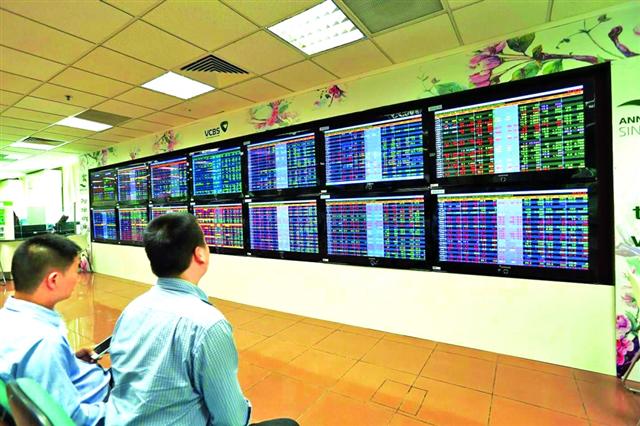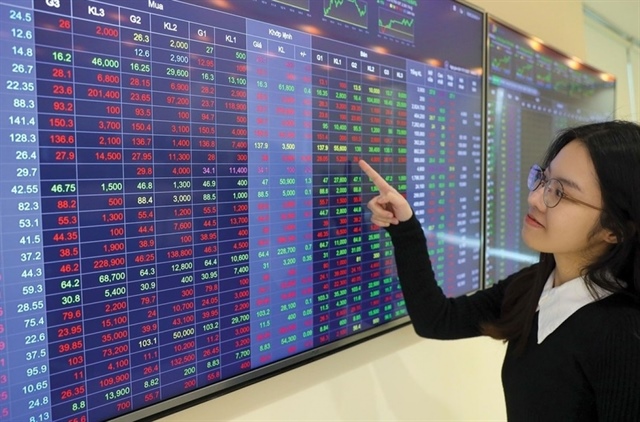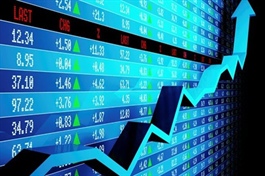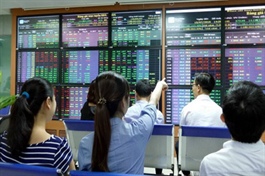Foreigners expected to return to Vietnam’s stock market
Foreigners expected to return to Vietnam’s stock market
Foreign investors are optimistic about the long-term development of Vietnam’s stock market after the Covid-19 pandemic is controlled and the economy returns to its normal growth cycle.
|
Ups and downs
In the first quarter of the year, the VN-Index dropped by more than 30 percent to around 662 points, the sharpest decline since the 2008 global financial crisis. The drop was attributed to the Covid-19 pandemic.
According to the Vietnam Financial Consulting Association (VFCA), during the development process of Vietnam’s stock market, foreign cash flows are an important indicator in determining the growth of stock market prices in particular, and stock indexes as well as market valuation in general.
The history of the stock market shows that foreign cash flows play an important role. Foreign indirect investment (FII) in Vietnam reached US$6.2 billion in 2007, mainly in listed stocks, bonds and private equity. This cash flow helped the market develop strongly in the first phase of 2008, with the VN-Index closing at 908.25 points on January 3, 2008.
Due to the economic crisis that same year, foreign cash flows decreased and the VN-Index fluctuated with unclear trends throughout the 2010-2015 period.
Due to growth recovery efforts, foreign investors bought more than VND29 trillion (nearly US$1.3 billion) in 2017 and over VND44 trillion (nearly US$1.9 billion) in 2018. As a result, the VN-Index surged to its all-time high of 1,204.33 points on April 9, 2018.
Foreign investors’ net buying activities continued in early 2020, bringing the VN-Index close to the 1,000-point mark before the Lunar New Year. However, the spread of the Covid-19 pandemic turned foreign investors into net sellers. According to the Yuanta Securities Vietnam Limited Company (YSVN), total foreign net selling reached US$460 million in the first quarter of the year.
Nonetheless, total foreign net selling on the Vietnamese stock market was lower than in other countries across the region, such as the Philippines with US$685 million, Indonesia with US$741 million, Malaysia with US$1.87 billion, and Thailand with nearly US$3.75 billion. The Covid-19 pandemic prompted investors to sell risky assets in emerging and frontier markets and opt for safer assets, such as treasury bills, gold and cash.
Attractive to foreign investors
According to the VFCA, foreign investors’ net selling has affected all stock markets across the region. However, foreign investors will not keep selling forever and will resume net buying activities once the pandemic is controlled. Vietnam has always been the most attractive destination among the emerging and frontier market group.
Phan Dung Khanh, investment advisory director of the Maybank Kim Eng Securities Company, said investment funds are always under pressure to disburse instead of holding cash. In the long term, this cash flow will become an important motivation to help the VN-Index recover and develop. The return of foreign cash flows and the introduction of new financial products for foreign investors will be a catalyst for the Vietnamese stock market.
Thanks to greater efforts in Covid-19 prevention and control and macroeconomic stability, foreign investors are confident about Vietnam’s stock market, as reflected in the fact that total foreign net selling was smaller than in other countries across the region.
Le Dat Chi, deputy dean of the School of Finance under the University of Economics Ho Chi Minh City, said the current price-earnings ratio (P/E) of Vietnamese stocks stands at around 10, the lowest over the past decade, meaning that stock prices are at a low level compared to returns. Stable macroeconomic indicators and the current low valuations of stocks will likely bring in more foreign capital, Chi said.





























